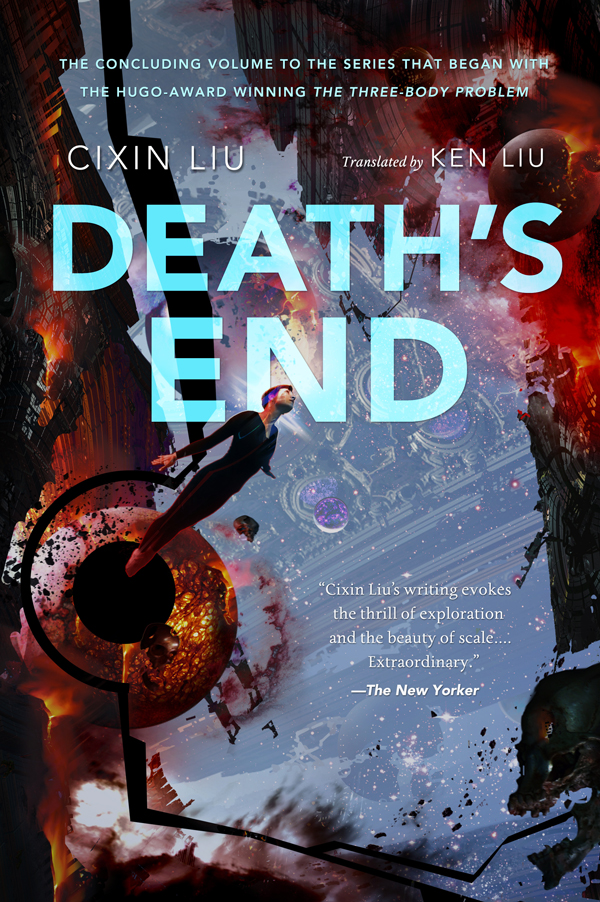
Death's End
Remembrance of Earth's Past Series, Book 3
کتاب های مرتبط
- اطلاعات
- نقد و بررسی
- دیدگاه کاربران
نقد و بررسی

July 18, 2016
Liu’s conclusion to his Three-Body trilogy (following 2015’s The Dark Forest) is an ambitious millennia-spanning space opera with enough ideas for a dozen books, but those well-thought-out concepts are more memorable than his characters. Despite the complex events of the prior two books, Liu makes the gloomy framework of his imagined future, in which humans have “finally learned that the universe was a dark forest in which everyone hunted everyone else,” accessible. The bulk of the plot focuses on humankind’s efforts to survive after first contact with the alien TriSolarans in the 21st century. The author makes suspension of disbelief easy with his nuanced and plausible portrayals of people’s reactions to apocalyptic threats, including efforts by the military-industrial complex to make the global crisis a business opportunity. The time scale is an obstacle to emotional engagement, but there are emotionally moving moments that ground the intriguing speculations about science and human nature.

Starred review from July 15, 2016
What if alien civilizations do exist? In this final installment of a stunning and provocative trilogy (The Dark Forest, 2015, etc.), Liu teases out the grim, unsettling implications.Previously, astronomer-turned-sociologist Luo Ji forestalled an invasion attempt by advanced aliens from planet Trisolaris. Luo's "dark forest" deterrence works thus: if intelligent species exist, inevitably some will be hostile; therefore, safety lies in remaining hidden while threatening to reveal your enemy's location to the predators. Earth knows where Trisolaris is, but the Trisolarans can't threaten to reveal Earth's location since they want to occupy it. Here, the story picks up at an earlier juncture. Cheng Xin, an aerospace engineer developing a probe to study the approaching Trisolaran fleet, learns that a friend has been tricked into volunteering to die in order to assist the project. Horrified, she retreats into hibernation. When she revives centuries later, dark forest deterrence holds the Trisolarans at bay. Luo, now old, hands Cheng the key to Earth's defense. Unfortunately, the sophons--tiny, intelligent, light-speed computers sent by the Trisolarans as spies--know Cheng lacks Luo's ruthlessness and immediately seize control of Earth; only by luck does Earth manage to trigger its deterrent. Hostile aliens immediately destroy planet Trisolaris, whose invasion fleet turns away because it's only a matter of time before the same invisible antagonists deduce the existence of Earth and strike the solar system. Once again, Cheng must choose between logical ruthlessness and simple human compassion, with the fate of humanity at stake. This utterly absorbing book shows little interest in linear narrative or conventional character interactions. Instead, the author offers dilemmas moral, philosophical, and political; perspectives--a spectacular glimpse of three dimensions seen from a four-dimensional viewpoint; a dying universe shattered by billions of years of warfare; and persuasive ideas whose dismal repercussions extend beyond hope and despair into, inescapably, real-world significance. Liu's trilogy is the first major work of science fiction to come to the West out of China, and it's a masterpiece.
COPYRIGHT(2016) Kirkus Reviews, ALL RIGHTS RESERVED.

























دیدگاه کاربران